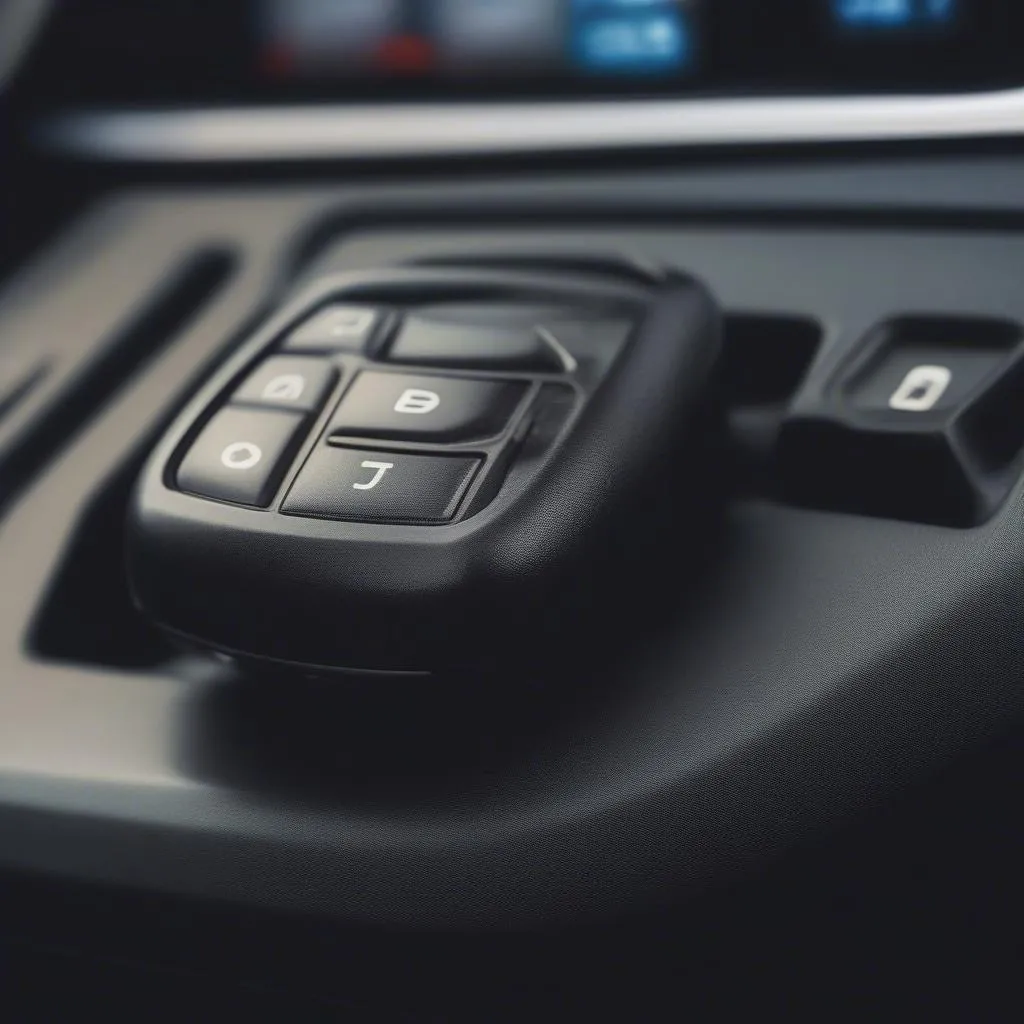A clicking noise and a car that won’t start is a frustrating combination. This issue can stem from a variety of problems, from a simple dead battery to more complex starter or electrical system malfunctions. This comprehensive guide will walk you through the most common causes and provide troubleshooting steps to help you get your car running again.
Why is My Car Clicking and Not Starting?
Several culprits can cause the dreaded clicking sound when you try to start your car. Understanding these potential issues is the first step to finding a solution.
Dead or Weak Battery
The most frequent reason for a clicking noise is a dead or weak battery. The clicking sound you hear is the starter solenoid engaging but lacking the power to crank the engine. This is especially common in colder weather, as batteries lose power in low temperatures.
Faulty Starter Motor
If your battery is good, a faulty starter motor might be to blame. The clicking could indicate a failing solenoid within the starter, or the starter motor itself might be worn out or damaged.
Corroded Battery Terminals
Corrosion on your battery terminals can disrupt the flow of electricity, preventing the starter from receiving enough power. This can also cause a clicking sound and prevent the car from starting.
Bad Ignition Switch
While less common, a faulty ignition switch can also cause starting problems. The clicking noise may occur as the ignition switch struggles to send power to the starter.
Electrical System Issues
More complex electrical problems, such as damaged wiring or a faulty alternator, can also prevent the car from starting and result in a clicking noise.
Troubleshooting a Clicking Car that Won’t Start
Now that we’ve outlined the potential problems, let’s explore some troubleshooting steps.
1. Check the Battery
Begin by checking your battery connections. Make sure the terminals are clean and tightly secured. If you have a multimeter, test the battery voltage. A fully charged battery should read around 12.6 volts. If the voltage is significantly lower, try jump-starting the car. If the car starts after a jump, your battery likely needs replacing.
2. Inspect the Starter Motor
If the battery is fine, the next step is to check the starter motor. This can be a bit more involved, and you may need some basic mechanical skills. You can try tapping on the starter motor with a wrench while someone tries to start the car. If the car starts, the starter likely needs replacement. However, it is advisable to seek professional assistance for this step if you aren’t comfortable working on car mechanics.
3. Examine the Battery Terminals
Clean any corrosion from the battery terminals using a wire brush and a mixture of baking soda and water. After cleaning, reconnect the terminals securely. This simple step can often resolve starting issues.
4. Consider the Ignition Switch
If the previous steps don’t work, a faulty ignition switch might be the culprit. Testing the ignition switch requires some electrical knowledge, and it’s often best to leave this diagnosis to a professional mechanic. A problem with your key fob could also be preventing the car from starting. Similar to [key fob cloning], issues with the key fob’s programming can lead to communication errors with the car’s immobilizer system.
5. Evaluate the Electrical System
Diagnosing complex electrical issues is best left to a qualified mechanic. They have the necessary tools and expertise to identify problems with wiring, the alternator, or other electrical components.
Conclusion
A clicking noise and a car that won’t start can be a significant inconvenience. By following these troubleshooting steps, you can often identify the problem and get your car back on the road. Remember, safety first! If you’re unsure about any of these steps, it’s always best to consult a qualified mechanic. Don’t let a clicking car keep you stranded!
Similar to [how to copy apartment key fob], car key fobs can also be susceptible to malfunctions. Diagnosing these issues might require specialized equipment, much like [key fob duplicater] tools.
If you’re experiencing this issue, understanding the different reasons behind why your [car is making a clicking noise and wont start] is crucial. Much like [duplicate a key fob] process, the complexity of modern car systems requires a careful approach to troubleshooting. Sometimes, even seemingly simple tasks, such as [how to clone a 2011 mazda cx9 key fob] can be challenging without the right knowledge. As with [key fob cloning], ensuring compatibility and proper programming is essential for a successful fix.
FAQ
-
What’s the most common reason for a car clicking but not starting? A dead or weak battery is usually the primary culprit.
-
Can I replace the starter motor myself? Yes, but it requires some mechanical skill. If you’re uncomfortable working on cars, it’s best to seek professional help.
-
How can I tell if my battery terminals are corroded? Look for a white, powdery substance around the terminals.
-
Is it safe to jump-start a car with corroded battery terminals? It’s best to clean the terminals before jump-starting to ensure a good connection.
-
What should I do if I suspect an electrical problem? Consult a qualified mechanic for diagnosis and repair.
-
How often should I check my battery? It’s a good idea to check your battery every few months, especially before long trips or during extreme weather conditions.
-
Can a bad alternator cause a clicking noise and prevent the car from starting? While a bad alternator usually manifests in other ways, it can indirectly lead to a dead battery, resulting in a clicking noise and a no-start condition.

